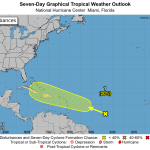The best diets to prevent heart disease and strokes have been ranked in an analysis of dozens of studies.
Researchers found the Mediterranean diet more effective at reducing the risk of death from any cause, such as heart disease, stroke or an inflamed heart.
It is yet another study that features heavy doses of fish, nuts, berries and whole grains atop its competitors.
A study published earlier this month found the diet can even slash a woman’s risk of early death by around 25 percent.
The research team also found that the plant-based Ornish diet and carb-heavy Pritikin diets were near ineffective for a person’s heart health.
Heart disease is the leading killer of Americans, responsible for around 700,000 fatalities yearly. It makes up around 20 percent of all US deaths.
The condition occurs when some sort of damage to the body’s cardiovascular system hampers the ability of the heart and arteries to distribute oxygen-rich blood across the body.
Meanwhile, 800,000 people have a stroke every year, with 185,000 resulting in death.
Strokes emerge when a blood vessel blockage denies blood to the brain. Even when a person survives, the small amount of time when the brain is deprived of oxygen is enough to cause permanent damage.
Current official guidelines recommend various dietary programs for patients who are more at risk of cardiovascular disease but often rely on low-certainty evidence from non-randomized studies.
To address this information gap, researchers trawled databases from randomized trials.
These trials looked at dietary programs’ impact on preventing death and major cardiovascular events in patients at increased risk of cardiovascular disease.
Researchers, who 40 trials involving just over 35,500 participants.
Each person was followed on average for three years across seven dietary programs.
These diets included low fat, Mediterranean, very low fat, modified fat and combined low fat and low sodium.
They also looked at the Ornish diet, a vegetarian diet low in fat, animal protein and refined sugars.
The final program was the Pritikin diet, a low fat and high-fiber meal plan.
The study found that the Mediterranean diet was better than minimal intervention at preventing untimely deaths among those at intermediate risk of cardiovascular disease.
They found 17 fewer deaths and non-fatal heart attacks per 1000 people over five years.
Seven fewer per 1000 people also suffered from a stroke on this diet. Low fat programs also significantly reduced the risk of death.
Compared to those not on the diet there were nine fewer deaths per 1,000 people. There were also seven fewer per 1000 people who suffered a non-fatal heart attack.
There were no clear differences between the Mediterranean and low-fat diets for mortality or non-fatal heart attack.
For patients at a high risk of cardiovascular disease, there were 36 fewer all-cause deaths per 1000 and 39 fewer cardiovascular deaths per 1000 among those who followed the Mediterranean dietary program over five years.
The five other dietary programs generally had little or no benefit compared with minimal intervention.










